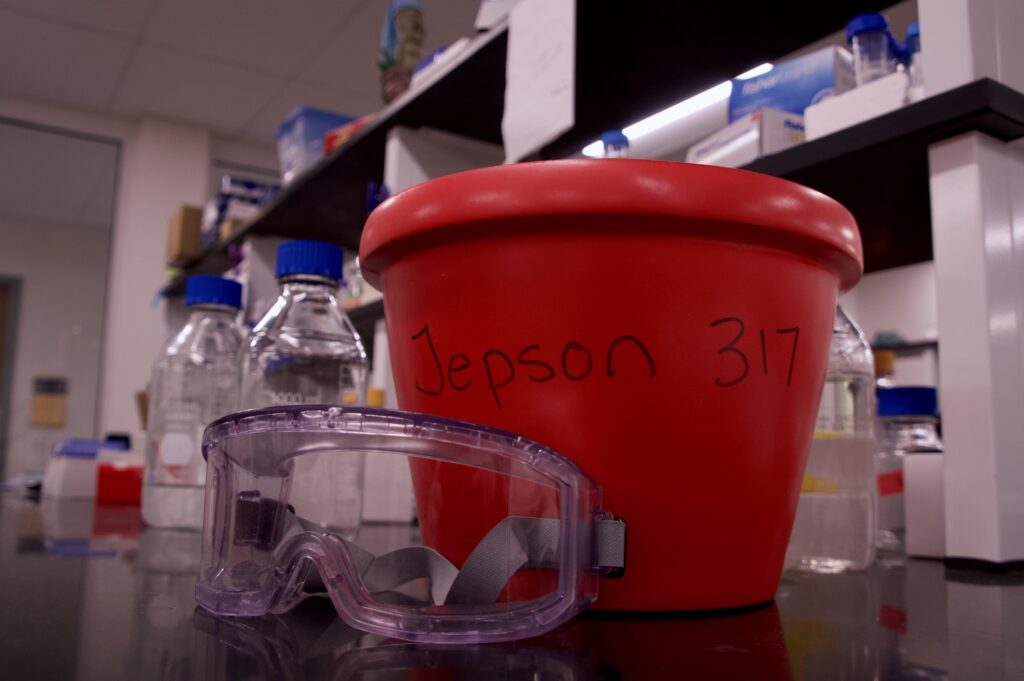Women in STEM panel talks discrimination, representation in field
3 min read
Female STEM professors at UMW reflect on building their careers and working to create a more inclusive environment in their departments. | Abbey Magnet, The Weekly Ringer
by JULIA MROTEK
Staff Writer
On Friday, March 24, in light of Women’s History Month, the Optical Society and James Farmer Multicultural Center hosted a panel to discuss gender issues within STEM fields. The panel was entirely made up of female professors who spoke about the lack of female representation, overcoming imposter syndrome and experiencing discrimination in male-dominated fields.
While earning her graduate degree, Geography Department Chair Jacqueline Gallagher did not have any female advisors or mentors, which negatively impacted her time in school.
“I could not remember having a female professor during her time in my science or geography classes,” she said. “My graduate advisors were men. I do not feel that this allowed me to be mentored well.”
Associate Professor of Computer Science Jessica Zeitz recalled being one of the only women in her science classes during her time as a UMW student.
“As someone who was a student here, it was very challenging,” she said. “A picture resurfaced recently from my senior year. I look back and I do not think I paid too much attention back then but I was the only girl in that picture.”
For many of the panelists, it was hard to recognize incidents of sexism or misogyny while they were happening.
“Similarly to Sarah [Morealli], I do not have any radar for discrimination,” said Assistant Professor of Biology Josephine Antwi. “I do not know why I have always been like that. If I am discriminated against for any reason, sometimes someone will have to reiterate what the person said or did.”
Despite earning achievements within their fields, many panelists said, they still sometimes feel they do not deserve the roles they serve in.
“Imposter syndrome, no matter how much education or experience you have, it still hits you,” Gallagher said. “I overcome it by powering through.”
Seitz also touched on experiencing imposter syndrome.
“With imposter syndrome, it makes you question if you deserve to be there,” she said. “You do not feel like you fit in. It is very easy to have that feeling when there is no one around you that is similar to you.”
Sarah Morealli, a senior lecturer in the geology department, self-doubt has been a struggle as well.
“For me, my biggest hurdle is myself,” she said.
The lack of female representation throughout Gallagher’s time in school motivated her to create a better environment for her own students.
“I try very hard to find my students opportunities,” she said. “It’s enormously important but I feel like I succeeded because I was determined to succeed.”
Female STEM students at UMW noted feeling this effort.
“As a woman in science, I feel so supported by the faculty at UMW,” said senior biology major Tori Ashton. “The school hosting events like this reinforces that support. Hosting events like the women STEM panel gives the stage to people who haven’t always been able to have it.”
Ashton spoke on the importance of acknowledging how far women in STEM have come while also recognizing that there is still room for improvement.
“Just because women in STEM have come so far doesn’t mean there isn’t still work to be done. It is important to listen and support the community as we move forward,” she said. “It is important for people to attend events like the women in STEM panel because there hasn’t always been a place for women in STEM. Events like these help us acknowledge how far women have come in making this space and how much further there is to go.”
Despite the challenges that come alongside being a woman in a male-dominated field, Zeitz is grateful for the opportunities she has had at UMW.
“I have been lucky that I have placed myself in situations where I have a support system and I have colleagues that do respect me and do want to know what I have to offer,” she said.


